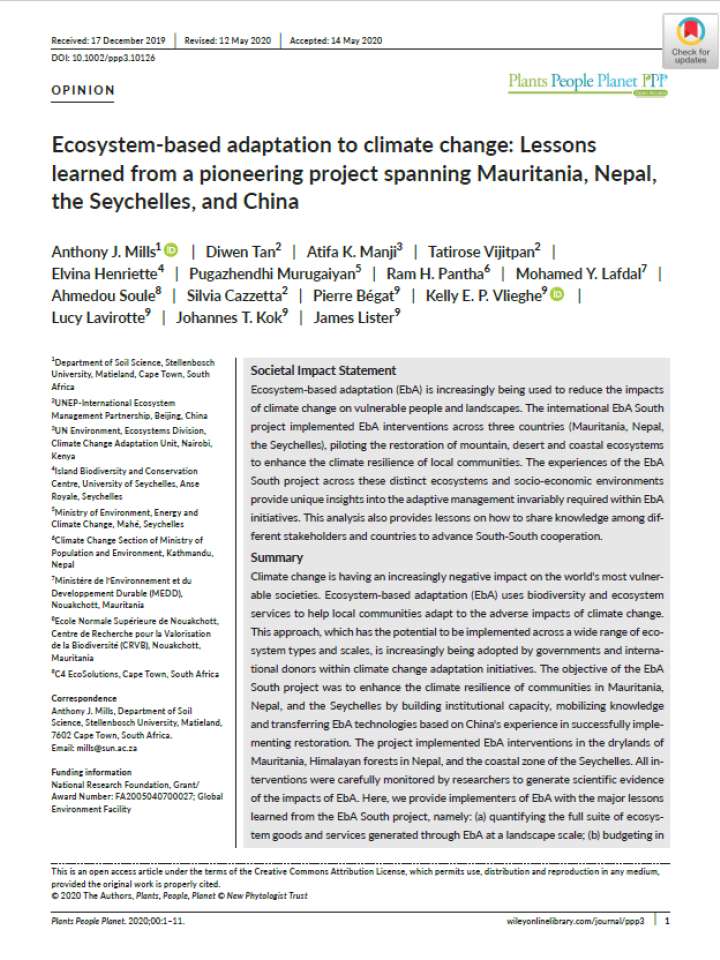Ecosystem‐based adaptation to climate change: Lessons learned from a pioneering project spanning Mauritania, Nepal, the Seychelles, and China
Societal Impact Statement
Ecosystem‐based adaptation (EbA) is increasingly being used to reduce the impacts of climate change on vulnerable people and landscapes. The international EbA South project implemented EbA interventions across three countries (Mauritania, Nepal, the Seychelles), piloting the restoration of mountain, desert and coastal ecosystems to enhance the climate resilience of local communities. The experiences of the EbA South project across these distinct ecosystems and socio‐economic environments provide unique insights into the adaptive management invariably required within EbA initiatives. This analysis also provides lessons on how to share knowledge among different stakeholders and countries to advance South‐South cooperation.
Summary
Climate change is having an increasingly negative impact on the world's most vulnerable societies. Ecosystem‐based adaptation (EbA) uses biodiversity and ecosystem services to help local communities adapt to the adverse impacts of climate change. This approach, which has the potential to be implemented across a wide range of ecosystem types and scales, is increasingly being adopted by governments and international donors within climate change adaptation initiatives. The objective of the EbA South project was to enhance the climate resilience of communities in Mauritania, Nepal, and the Seychelles by building institutional capacity, mobilizing knowledge and transferring EbA technologies based on China's experience in successfully implementing restoration. The project implemented EbA interventions in the drylands of Mauritania, Himalayan forests in Nepal, and the coastal zone of the Seychelles. All interventions were carefully monitored by researchers to generate scientific evidence of the impacts of EbA. Here, we provide implementers of EbA with the major lessons learned from the EbA South project, namely: (a) quantifying the full suite of ecosystem goods and services generated through EbA at a landscape scale; (b) budgeting in advance for management of time‐consuming complexities related to socioeconomics and ecology such as land‐use conflict, ineffective government structures, disagreements regarding intervention options, and challenging environmental conditions; (c) undertaking long‐term research for adaptive management and documenting the project's successes; (d) providing platforms for effective communication and collaboration among stakeholders with different first languages; and (e) regularly adjusting exit strategies for maintenance of the EbA landscapes after closure of the project.
Explore further
